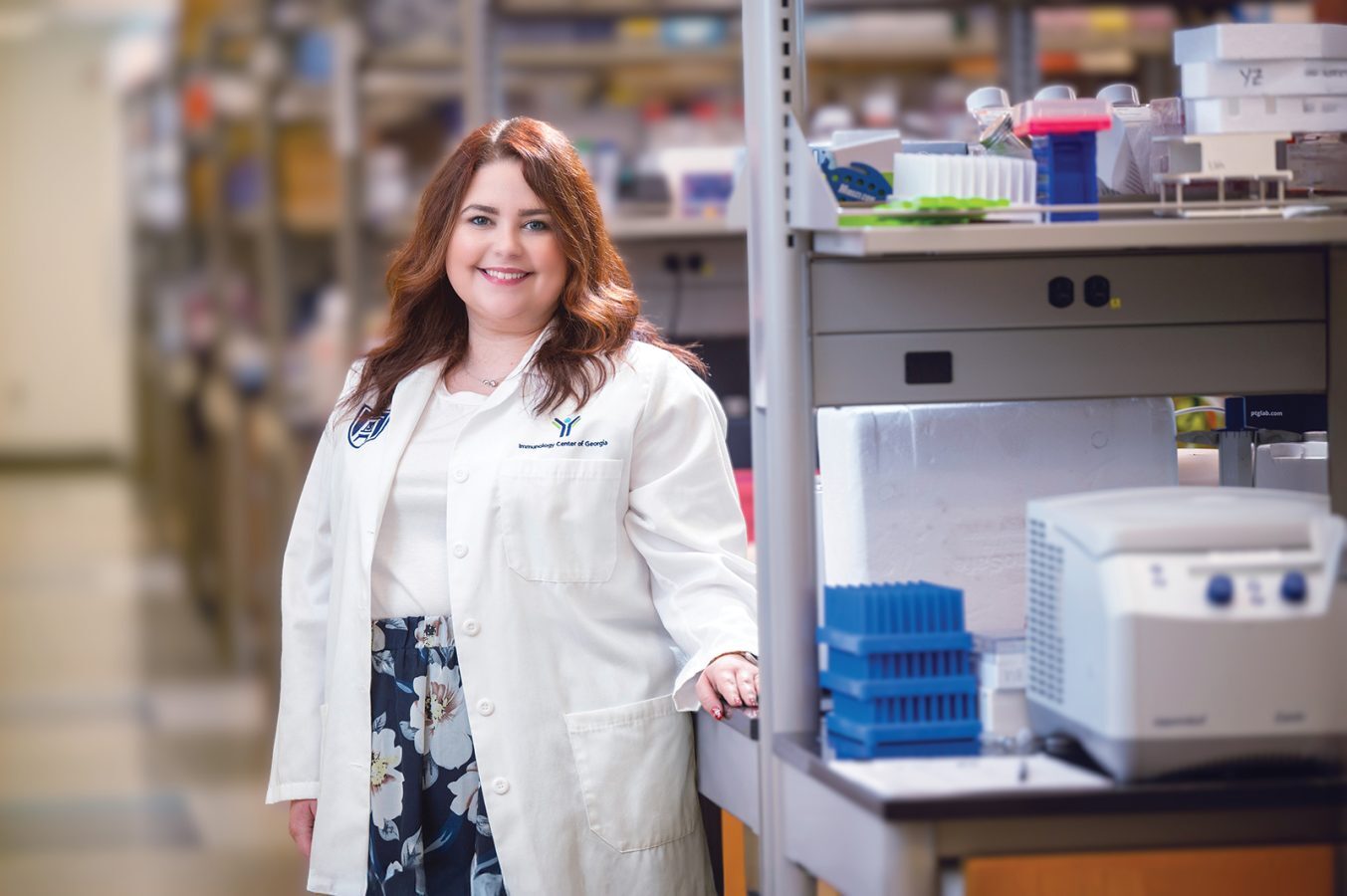Augusta University’s new research enterprise, the Immunology Center of Georgia (IMMCG), is home to a promising young researcher who has received the two and a half year old center’s first American Heart Association (AHA) Postdoctoral Fellowship.
While the Immunology Center is celebrating its first grant money award for research, it’s not AU’s first AHA Fellowship by far.
Sabrina Robichaud, Ph.D., is following in the footsteps of a long line of Augusta University researchers, as the college leads the state of Georgia with $49.8 million in funding across more than 300 AHA awards.
This grant awarded to Robichaud will equip her with the resources needed to investigate the nexus between cancer and cardiovascular disease, a research area which is gaining attention as scientists delve into the immune system’s involvement in both ailments.
The link between cancer and atherosclerosis
Robichaud is particularly focused on studying the link between cancer and atherosclerosis, a leading cause of heart disease.
Research indicates that cancer survivors have a higher likelihood of dying from heart disease compared to secondary cancers; however, the reasons for this connection are still not well understood.
“We’re just really excited to see where this research is going to lead,” said Robichaud.
Developments and potential outcomes
Initially, Robichaud did her Ph.D. study solely in the field of atherosclerosis, until she joined IMMCG co-director Catherine Hedrick, Ph.D.’s laboratory, which focuses on cancer.
Robichaud said she thought combining the two fields would be an interesting way to mesh both of her interests, and Hedrick agrees that the research could create improved treatments that halt the advancement of diseases.
“The immune system plays a major role in cardiovascular disease, yet many treatments focus on managing symptoms rather than addressing underlying immune dysfunction. By combining our strengths, MCG can develop better therapies that prevent disease progression and improve long-term patient outcomes,” said Hedrick in a press release.
Robichaud echoed this, saying that a potential outcome of the research is finding an existing treatment that could be effectively used to help reduce heart disease risk.
“There’s most likely something on the market already that could be easily repurposed in order for us to be able to better target these patients, to minimize their risk of developing cardiovascular disease later on in life,” she said.










